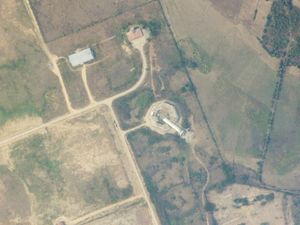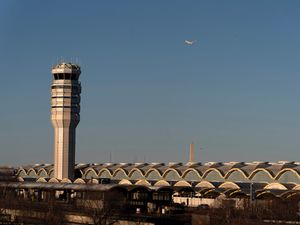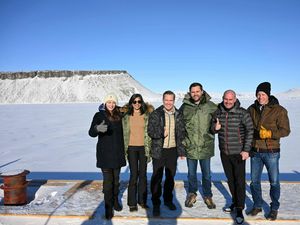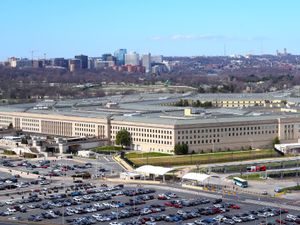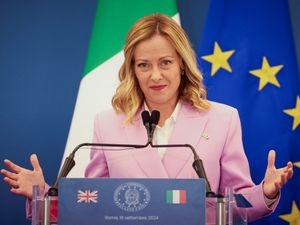Pope Francis ‘very lively’ as he continues recovery, doctor says
Dr Sergio Alfieri said the pontiff had shown ‘a truly surprising improvement’ since returning to the Vatican after a five-week hospital stay.
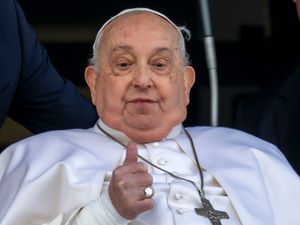
Pope Francis has shown “a truly surprising improvement” since returning to the Vatican to convalesce after surviving a life-threatening bout with double-pneumonia, the doctor who coordinated the pontiff’s five-week hospital stay said.
“I find him very lively,” Dr Sergio Alfieri said on Saturday, after visiting the pope at his apartment in the Santa Marta Domus on Wednesday, three days after his release from Rome’s Gemelli hospital.
“I believe that he will return if not to 100%, 90% of where he was before.”
Francis appeared frail and weak as he greeted a crowd of well-wishers from a hospital balcony on Sunday.
His voice was waning as he praised a woman in the crowd for bringing yellow flowers.
He was able to only partially lift his arm to bless the people and he gasped for air as he was wheeled back inside.
Dr Alfieri said the pope’s voice was regaining strength, and that his reliance on supplemental oxygen has decreased.
The limited mobility of his arm was due to an unspecified trauma he sustained before being taken to hospital, and that will take time to heal, Dr Alfieri said.
The 88-year-old pope was taken to hospital on February 14 after a long bout with bronchitis that left him breathless at times, and which quickly developed into double pneumonia and revealed a polymicrobial (viral, bacterial and fungal) respiratory infection.
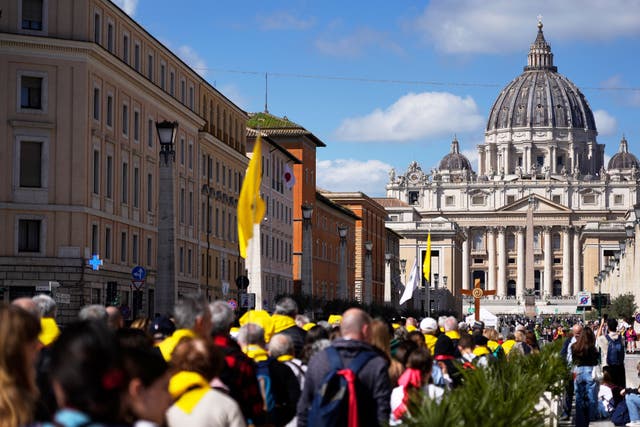
Throughout the ordeal, doctors emphasised the complexity of his condition, given his age, lack of mobility requiring a wheelchair, and the removal of part of a lung as a young man.
Dr Alfieri repeated that he did not think the pope would make it after a severe respiratory crisis a week after being taken to hospital, and he informed the pope that a “decisive” treatment necessary to save him would put his organs at risk.
“He gave his consent, and then he looked at Massimiliano Streppetti, whom he named his personal health assistant who assumed the responsibility, to say, ‘We approve everything’, also at the price of coming out with damaged kidneys or bone marrow that produces damaging red blood cells,” said Dr Alfieri.
Dr Alfieri preferred to describe the treatment as “decisive”, and not aggressive, and emphasised that no extraordinary, life-extending measures were ever taken.
The February 22 incident was one of several critical moments when the pope’s life hung in the balance, the doctor said.
While Francis beat the double pneumonia in the hospital, Dr Alfieri said he is continuing to treat the fungal infection, which he said will take months to resolve.
The pope is also receiving physical, respiratory and speech therapy.
Dr Alfieri continues to consult the pope’s personal medical team daily, and will visit Francis in the Vatican every week.
The pope demonstrated his trademark humour in this week’s visit, responding to a comment by Dr Alfieri that the 88-year-old pontiff had the mentality of a 50- or 60-year-old.
“As I leaned in, he said, ‘Not 50, 40,'” Dr Alfieri recalled.
“So his good sense of humour is back.’’
Doctors have ordered the pope to rest for at least two months and to avoid crowds.
But after seeing the pope’s improvements and knowing his work ethic, Dr Alfieri warned that “if he recovers so quickly, they will have to put on the brakes”.

